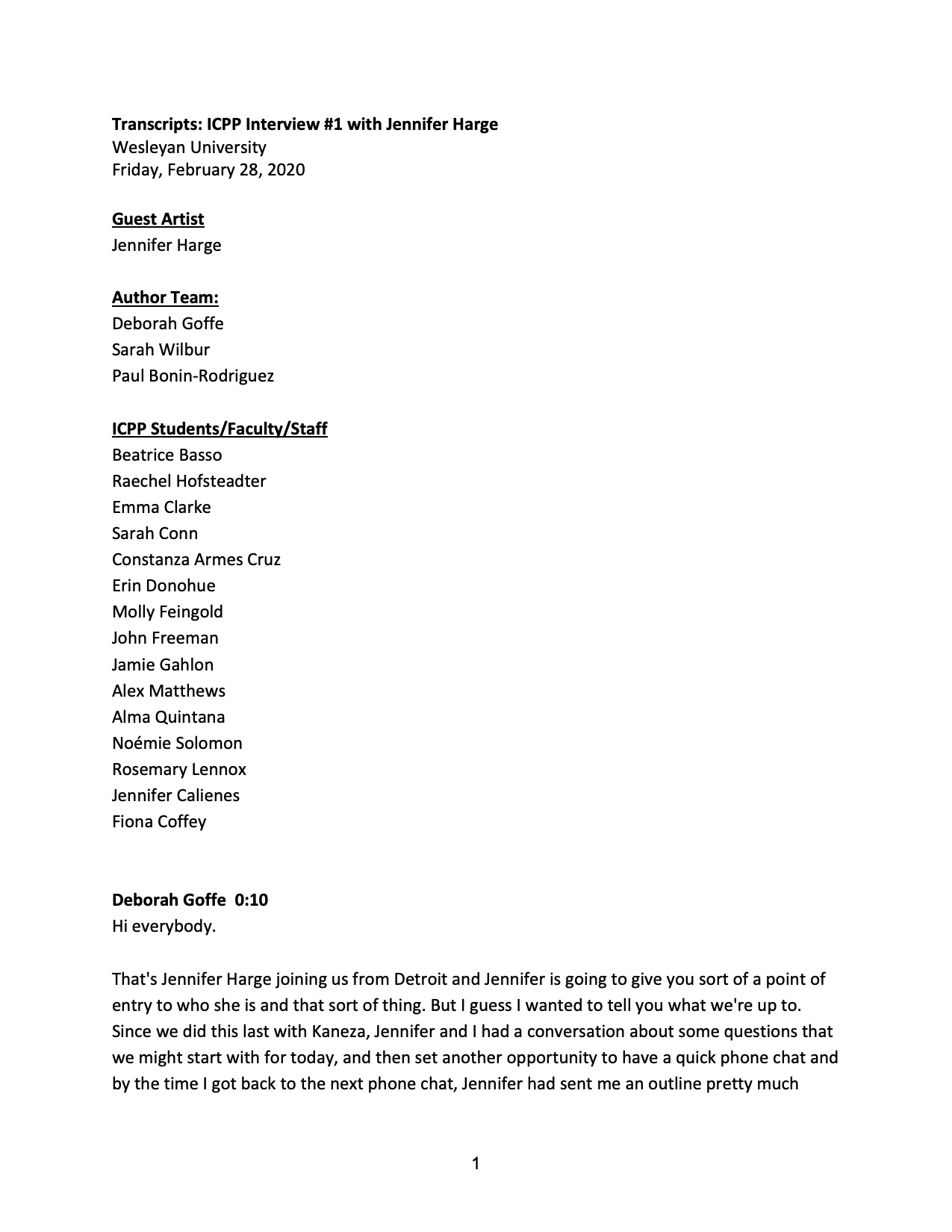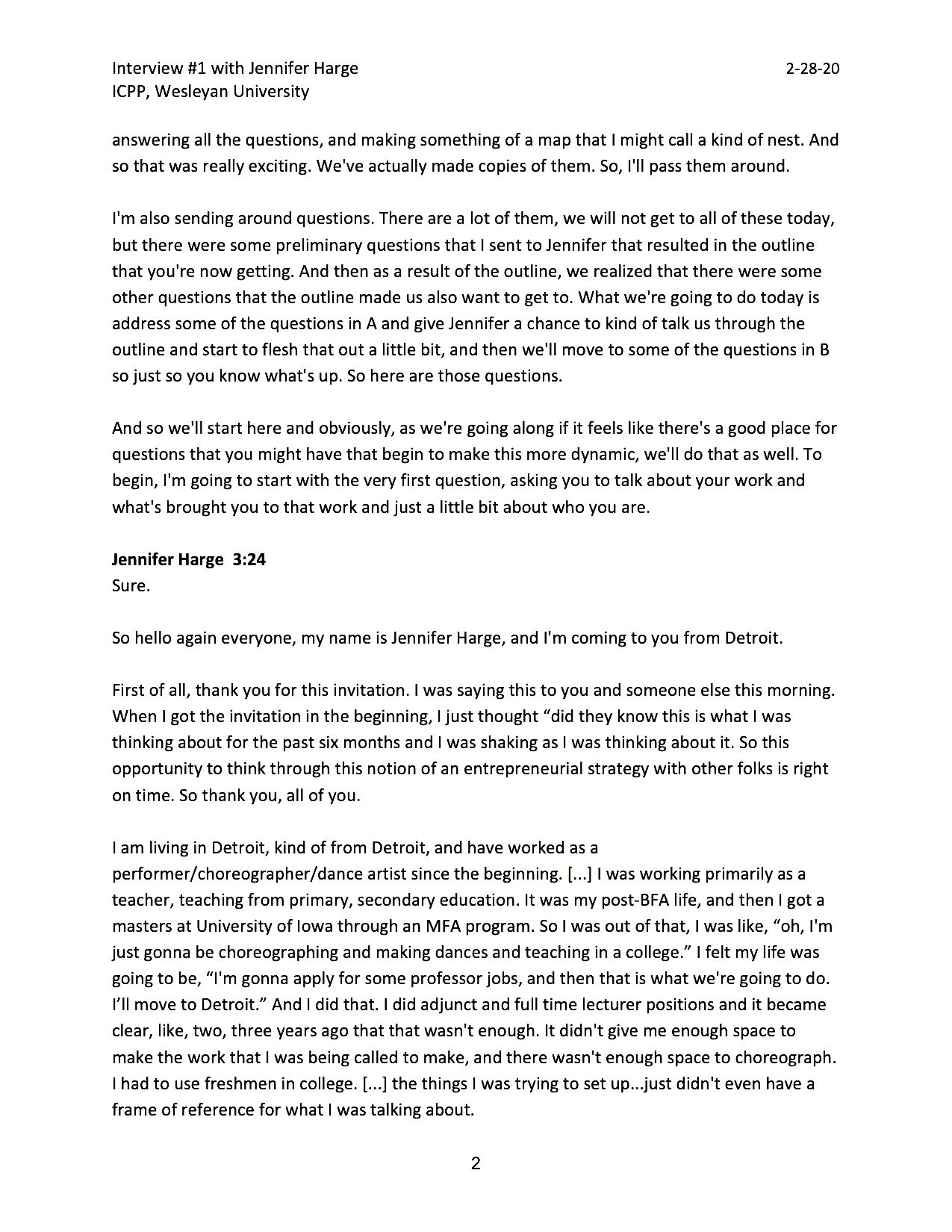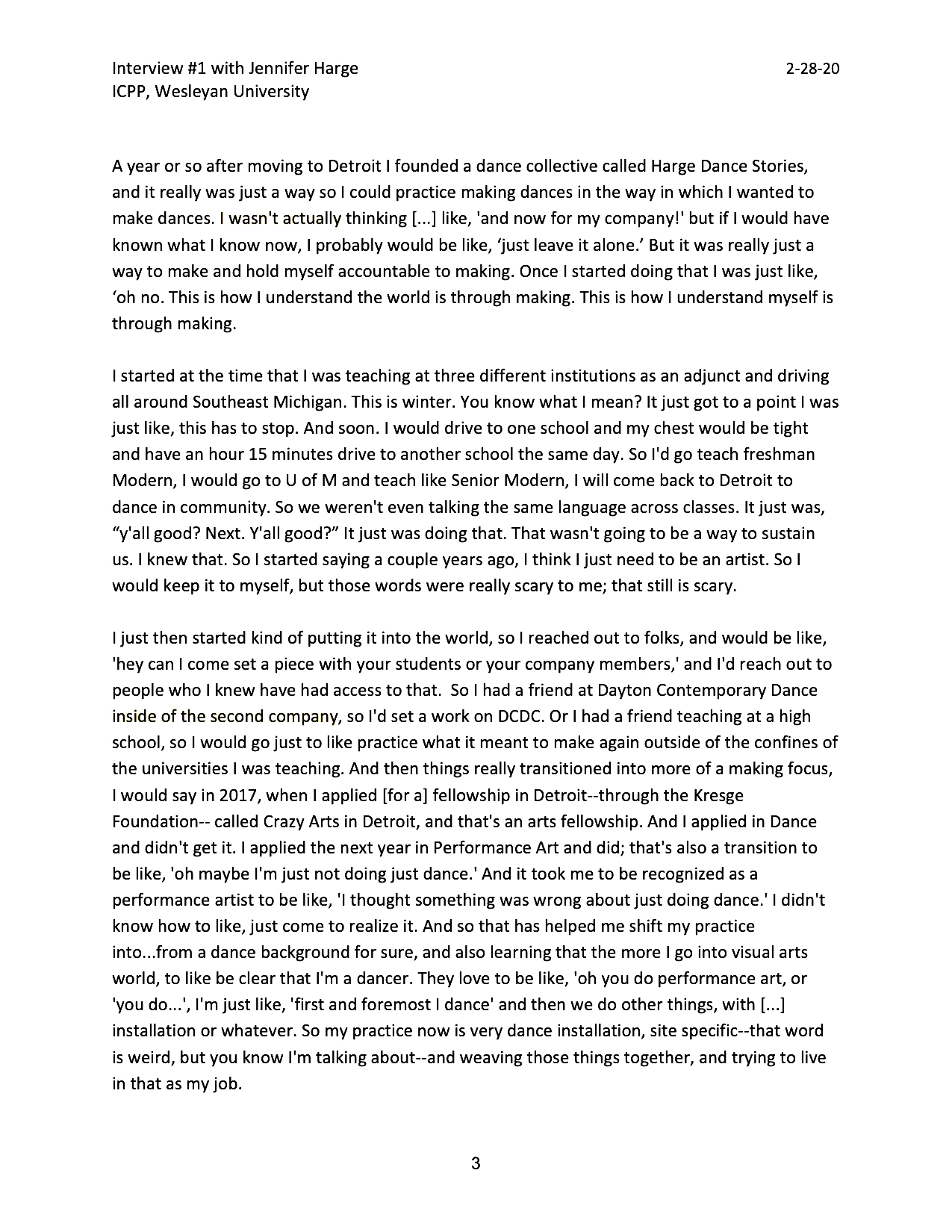ICPP → Jennifer Harge
Jennifer Harge participated in ICPP’s Doris Duke Charitable Foundation Performance Artist Case Studies beginning in 2020.
Related Materials
Clip from an Interview with ICPP and Jennifer Harge, Friday, February 28, 2020.



Partial transcript from an Interview with ICPP and Jennifer Harge, Friday, February 28, 2020. Download PDF.
This interview took place within the framework of the course “Entrepreneurial Strategies.” It was recorded on Friday February 28, 2020 at Wesleyan University.
Timeline of Research Encounters
• Public Event: Jennifer Harge, FLY | DROWN: Process Revisited, July 16, 2020 on Zoom, (video; 1:24:51)
• Interview: ICPP Interview #1 with Jennifer Harge, Entrepreneurial Strategies, Wesleyan University, Friday, February 28, 2020 (transcript and audio recording; 1:41:45)
• Interview: ICPP Interview #2 with Jennifer Harge, Entrepreneurial Strategies, Zoom, Friday, July 17, 2020 (transcript and video; 1:53:37)
Interview Framework
• What is your work and what brought you to that work?
• What relationships, affiliations, networks, and/or systems of provisioning do you deem integral to your work as an artist and your evolving artistic trajectory? How do these relationships (institutional, interpersonal, and otherwise) manifest and what makes them effective? What do you crave from those relationships?
• What have been some key moments of establishment/growth/transition? Let’s make a list of periods, and feel free to keep adding to the different periods. (We can use paper on the wall to chart different moments.) In this section, you should feel free to identify the good moments, as well as the harder lessons and experiences of failure. If you wish to anonymize any aspect, just let us know.
• What were some of the key knowledges you have picked up in those identified stages? (Again, we can put it on paper)?
• How have organizational and financial structures mapped onto these key moments in your artistic trajectory?
• Where are the moments that have been particularly challenging or have felt like failure?
• Can you flesh out some pivotal moments that offer some context?
• What structures have you had to build in the absence of institutional support?
• Do you consider your work to be part of a field? If so what is that field and how has your picture of the field changed as a result of your artistic pursuits? How has your definition of what we would call the field changed as a result of the works you’ve made? What reality are you shaping, materially, relationally, aesthetically, politically?
• What would you tell the earlier Jennifer about how to build relations and networks? Similarly, what insight/advice do you offer to incoming artists whose practice reflects/relates to your own?
Questions prepared by Deborah Goffe